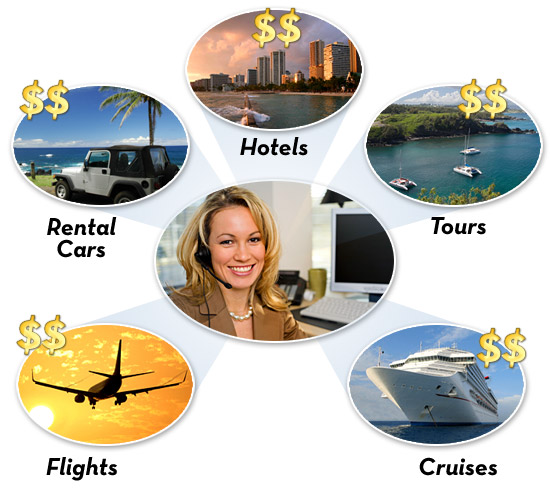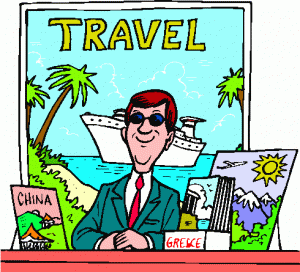
- •I frequently watch soap operas.
- •I can’t stand cooking.
- •Vocabulary & speaking.
- •It’s ok, I suppose. No, not really. Yes, I love it. No, I can’t stand him. Yes, they’re ok.
- •It’s a bargain!
- •It really suits you.
- •I’m just looking.
- •2.2. Comprehension questions.
- •Vocabulary & speaking
- •I’m really good at languages.
- •3.2. Comprehension questions.
- •Vocabulary & speaking
- •I was full when we finished.
- •It was delicious.
- •Is service included?
- •4. 2. Comprehension questions.
- •4.9. Fill in the gaps with the words below.
- •Vocabulary&speaking
- •It’s going to be worth it.
- •I’m looking forward to it.
- •I was really thrilled!
- •5.2. Comprehension questions.
- •Vocabulary & speaking
- •It’s not working properly.
- •It is made in Italy.
- •I can’t afford to pay the rent.
- •6. 2. Comprehension questions.
- •Check your logic.
Vocabulary & speaking
5.8. Answer the questions.
Have you ever been abroad?
Have you ever gone on a trip by plane, ship?
What was it like?
Have you ever had any problems at the airports or during the trip?
Where would you like to travel next?
5.9. Describe your ideal journey. State what things are most important for you.
shopping
a budget flight
good weather
cheap accommodation
sightseeing
beautiful scenery
activities
practicing English
5.10. Read these short paragraphs and choose either –ed or –ing.
1 .
We took the kids to Florida last year. We did all the theme parks. I
didn’t want to go on the roller-coaster, because I’m terrifi
(ed, ing) of height. But the kids wanted to go on the ride, so I had
to …and was really thrill (ed, ing)! I loved it.
.
We took the kids to Florida last year. We did all the theme parks. I
didn’t want to go on the roller-coaster, because I’m terrifi
(ed, ing) of height. But the kids wanted to go on the ride, so I had
to …and was really thrill (ed, ing)! I loved it.

2. We went to St Martin in the Caribbean. Well, we were really tir (ed, ing) when we arrived – it was a long exhaust (ed, ing) flight. But the hotel was only a few minutes from the airport, which was great. We were pleas (ed, ing) to get in and have a hot shower so quickly. The next day we went to the beach. It was very relax (ed, ing). Then there was this tremendous noise above us – we were really shock (ed, ing).This huge jet flew right over our heads and landed at the airport. Actually, it was rather excit (ed, ing)! After that, we waited for the flights. A plane would come in, then it would take off two hours later. We’d all watch it.

3. I like short breaks. I get bored on the beach, so I prefer to go to a city. Recently, I’ve been to London, Paris and Boston. Last year I went to Vienna just before Christmas. They have these really interest (ed, ing) Christmas markets, and there’s always somewhere to go and something to see. I’m interest (ed, ing) in museums and art galleries, and it was good for shopping too. It was freezing cold, and there was snow on the ground, but the skies were blue.

Which type of holiday would you choose? Why?
5. 11. Role play. Travel agency. One of you is a travel agent. Offer a perfect trip for your client.
For Travellers:
- You want peace and quiet, somewhere relaxing.
- You want thrilling adventures.
- You want an interesting programme with a lot of history and culture.
For Travel Agents: Holiday packages.
Italian tour: For the architecture’s lover, there are a lot of masterpieces to see, from the Colosseum to the Leaning Tower of Pisa; for the pleasure seeker, it’s a glass of wine and a fine meal followed by a romantic gondola ride on the canals of Venice; and for those of you who like chic, it's shopping in Milan.
Jamaica: Sandals Montego Bay.Cool sea breeze, open-air lobby - you know that you have arrived at the perfect vacation paradise. Set along Jamaica's longest private white-sand beach, Sandals Montego Bay offers guests an exciting Caribbean experience. With eight world-class restaurants, chic pools, tropical gardens, and Bay Roc Villas, Sandals Montego Bay is the hottest resort in Jamaica.
Dubai tours: Morning Safari! A Morning In The Arms Of Desert!Once we pick you from your location, your journey begins with the call of the desert dunes. Experience the thrills of the golden dunes. Come and have a different type of experience with Sand skiing, after watching the Thrills of Desert dune also enjoy quad biking.
LISTENING
5.12. Listen to the dialogue and fill in the missing words.
(T – Traveller, C – Clerk)
T: Can I _________ in here for the London __________?
C: WV376? I’m sorry you’re too late. The flight’s _________.
T: But I’ve got a ticket…
C: The always closes _________minutes before _____________. I’m very sorry.
T: Look, it’s really important…
C: The flight is _________now. It’s leaving in fifteen minutes. There’s __________I can do.
T: Oh no! My brother’s getting married in London tomorrow! I’ve only got _______________... I can run to the _______.
C: No, you can’t. It’s closed.
T: Can I speak to your supervisor?
C: No, I’m sorry, you can’t.
T: I don’t believe it! This is really stupid! I’m going to ________ my brother’s wedding. Do you understand?
C: Please, don’t lose your _______, sir. There’s nothing we can do.
T: OK, OK. When’s the next flight?
C: This is the last flight today, I’m ________. The next flight doesn’t leave until 8.30 tomorrow morning.
T: Tomorrow? When does it get to London?
C: It _________at 10.30 local time.
T: OK, change me to that flight.
C: Let me check. That flight’s usually quite ______.
SELF-STUDY
5. 13. Fill the text with the missing phrases. Where shall they go?
Is the service included?
Would you like to see our brochure?
Shall we go?
Are they first class?
We like to eat well.
Can the tour manager translate for us?

Mr. and Mrs. Bascomb would like to visit Europe this summer. At the moment, they’re talking to their travel agent, Mr. Winkle.
“We have three European tours,” he says. “Our Grand Tour will be perfect for you _____________________”
“Yes, we would,” says Mr. Bascomb. “These pictures are lovely. Will the tour include all of Europe, Mr. Winkle?”
“Of course. And you’ll have a lot of free time in each country.”
“I’d like to know more about the hotels,” says Mrs. Bascomb. “__________________________”
“Naturally. You’ll stay in the best hotels in Europe. They all have great locations, excellent rooms, and fine cuisine.”
“Tell us more about the food,” says Mr. Bascomb. “_____________________________________”
“You’ll be happy to know all the restaurants on the Grand Tour are famous for their cuisine,” says Mr. Winkle. “You can dine when and where you like, even in your room. At no extra charge.”
“What about tipping?” asks Mrs. Bascomb. “_____________________________ “You don’t have to worry about tipping,” says Mr. Winkle. “The tour manager pays all the waiters, drivers, and guides.”
“___________________________________________” asks Mr. Bascomb. “We don’t speak any foreign languages.”
“All the tour managers speak several languages. They can help you with anything you need.”
“That’s wonderful. What do you think, Henrietta?” _______________“Sure. We can take the tour in June.”
“Shall I make your reservations now?” asks Mr. Winkle.
“Yes. Would you like a deposit?” “Yes, thank you. That will be $200. I know you’ll enjoy your trip.”
WRITING.
You are a travel agent. Describe a holiday package to a new destination.
________________________________________________________________________________________________________________________________________________________________________________________________________________________________________________________________________________________________________________________________________________________________________________________________________________________________________________________________________________________________________________________________________________________________________________________________________________________________________________________________________________________________________________________________________________________________________________________________________________________________________________
TRANSLATION
На этой неделе мы едем в турагентство покупать путевку на юг. ______________________
___________________________________________
Когда вы собираетесь с ними встречаться?
___________________________________________
___________________________________________
Его самолет вылетает завтра в Мадрид в 8 часов вечера. _______________________________
___________________________________________
Вы планируете посетить городской музей?
___________________________________________
___________________________________________
Мы собираемся бронировать тур на следующей неделе. __________________________
___________________________________________
Он собирается поменять работу в следующем месяце. ____________________________________
___________________________________________
У вас есть с собой ручная кладь? ____________
___________________________________________
Когда твой самолет прибывает в Москву?
___________________________________________
___________________________________________
У него встреча с важными клиентами через неделю. ___________________________________
___________________________________________
На следующей неделе мы едем за границу. ___________________________________________
___________________________________________
Когда самолет взлетел, я ужасно перепугалась. ___________________________________________
___________________________________________
В этом райском уголке вы насладитесь живописными пейзажами. ___________________
___________________________________________
Перелет был действительно утомительным, и мы сразу же уснули. _________________________
___________________________________________
Путевка в том турагентстве стоила невероятно дорого. __________________________________________
___________________________________________
Это пятизвездочный отель?
___________________________________________
___________________________________________
READING. Student B.
5.1. The First Trip Abroad (“If Tomorrow Comes” by Sidney Sheldon)
Work in pairs. Student B reads the text below. Student A goes to page 24 .
Ask student A for information you don’t have. Then answer his/her questions.
Early the following morning Tracy stopped at a travel agency and reserved (What/reserve?) What did Tracy reserved? ………………… on the Signal Deck of the Queen Elizabeth II. She was as excited as a child about her first trip abroad, and spent the next three days buying clothes and luggage.
On the morning of the sailing Tracy hired a limousine to drive her to the pier. When she arrived at Pier 90, where the QE II was docked, it was crowded with photographers and television reporters. Tracy brushed past them, showed (What/show?) ……………….. to a ship’s officer at the gangplank, and walked up onto the ship. On deck, a steward looked at Tracy’s ticket and directed her to her stateroom. It was a lovely suite, with a private terrace. It had been ridiculously expensive, but Tracy decided it was going to be worth it.
She (What/do) ………………… and then wandered along the corridor. In almost every cabin there were farewell parties going on, with laughter and champagne and conversation. She felt a sudden ache of loneliness. (Why/feel lonely?)………………………………………………………. .
She made her way up to the Boat Deck and heard the sound of a deep-throated boat whistle and calls of «All ashore who’s going ashore», and she was filled with a sudden excitement. She was sailing into (Where/sail?) ………………………..…… . She felt the huge ship shudder as the tugs started to pull her out of the harbour, and she stood among the passengers on the Boat Deck, watching (What/watch?) ……………………., and then she went exploring the ship.
The QE II was like a huge city, more than nine hundred feet long and thirteen stories high. It had four restaurants, (How many bars/have?) ……………….. bars, two ballrooms and two nightclubs. There were scores of shops, four swimming pools, a gymnasium, a golf driving range, a jogging track.
“I may never want to leave the ship”, Tracy marveled.
APPENDIX Useful vocabulary
accommodation
bored /boring
departure desert
entertainment excited / exciting exhausted/exhausting
gate
hand-baggage huge
luggage
nightlife non-stop/direct flight
on board
package holiday pier pleased
relaxed /relaxing resort
scenery sightseeing suite
terrified/terrifying thrilled/ thrilling time difference tired/ tiring to arrive to be delayed to check in to depart to go abroad to go by ship, plane, train, coach, tar to go on a tour, journey, voyage to hire to land to miss to sail to see off to take off to unpack travel agency
via
|
Formulas
Can I speak to your supervisor?
Don’t lose your temper.
How about…?
I’m really looking forward to it. It’s going to be worth it.
Shall we…? Sounds fun.
The flight is boarding now. There’s nothing I can do. This is really stupid!
What are you doing tomorrow?
Extra
arrangement
decision deck
farewell party
jogging track
harbour
loneliness
out of sight
picturesque prediction promise
request ridiculously expensive roller-coaster
suggestion
theme parks to explore to wander
|
GRAMMAR EXPLANATION
Present Perfect have(has)+V3
We use this tense to speak about finished actions which have a result in the present. It can also be used to describe an action which started in the past and continues up to the present. The following word-markers help to identify this tense: already, just, yet, ever, never, (once, twice, many times) in my life, since, for.
Positive sentences:
I/You/We/They have already finished the meal. He/She/It has already eaten it.
Negative sentences:
I/You/We/They haven’t finished the meal yet. He/She/It hasn’t eaten it yet.
Questions:
Have I/you/we they been there? Has she/he ever been to London?
Some/Any
Some and Any are used with plural or uncountable nouns. Some is used to describe unspecified quantities. We can also use Some when we ask for or offer something.
I gave her some information about the restaurant. Can I get you some coffee? I like some Italian food (=not all). I don’t like some Chinese dishes.
We use Any in questions to ask about the existence of something. Any can be used in negative sentences to talk about non-existence. In positive sentences it is used in the meaning “all, everything”.
Do you serve any salads? I don’t have any bread left. I love any French food. (=all)
|
Future
We use Present Simple to talk about timetables.
ex. The train departs at 11.00.
We use Present Continuous to talk about something that has been planned, i.e. about our arrangements.
ex. We are meeting on Sunday.
We use “to be going to” to talk about our intentions or predictions.
ex. I’m going to move abroad.
This tree is going to fall.
We use Future simple to talk about: more distant, indefinite future, promises, on-the-spot decisions.
In questions we use it for requests and instructions. We use the form Shall for asking decisions and suggestions:
ex. I will get married and have two children some day.
I’ll answer the phone.
I’ll pay you back. I promise.
Will you give me a pen, please?
Shall we meet near the cinema?
Shall I help you?
UNIT 6: HOME
